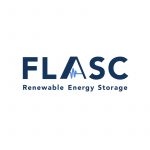We are honoured to introduce FLASC- Offshore Energy Storage to the Green Deal Malta platform! In our exclusive interview with FLASC, Daniel Buhagiar explains what FLASC is all about, the services it offers, and what it aims to solve. He also speaks about FLASC’s collaboration with ‘Subsea 7’, which focuses on the industrialisation of FLASC’s proprietary energy storage technology. Daniel explains how he believes that the key to making Malta more sustainable is long-term thinking that goes beyond making a quick buck, and notes that the energy system of the future will require a mix of technology solutions to ensure a sustainable and equitable future for all. Find out more about FLASC and what they do by taking a look at our interview with Daniel!
What is FLASC all about? What products and services do you offer?
FLASC originated at the University of Malta as a project to develop an offshore energy storage system for offshore applications. After initial development work, proof-of-concept testing and patenting the invention, the University spun out a company called FLASC B.V., established in the Netherlands and based at the Buccaneer Energy & Offshore Accelerator. While research and development continues at the University, the company is focused on (i) the commercializing of the energy storage technology, and (ii) on working with potential clients and key stakeholders to bring the technology to market. In line with these objectives, FLASC B.V. also supports other companies and consortia with studies on concept development, sizing and evaluation of offshore energy storage projects.
How did the idea for FLASC come about? Who are your services targeted towards?
The FLASC technology was conceived during my Ph.D. research at the University of Malta, under the supervision of Prof. Ing. Tonio Sant from the Department of Mechanical Engineering. Our initial focus was on offshore wind energy production, but we saw an interesting problem that would come about when integrating large quantities of variable power into electrical grids. The focus, therefore, shifted to energy storage, and we developed a type of Hydro-Pneumatic Energy Storage (HPES) that could be upscaled, whilst allowing us to leverage the marine environment to maximize efficiency. Together with our colleague Dr Ing. Robert Farrugia from the Institute for Sustainable Energy, we took the concept forward and secured funding from the Malta Council for Science and Technology (MCST), and additional support from Transport Malta (Malta Marittima at the time) and the Research, Innovation and Development Trust of the University of Malta (RIDT). The funding was used to build a proof-of-concept prototype and run an experimental campaign in the Grand Harbour, which spanned from late 2017 to mid-2019. This validated our idea and allowed us to measure and confirm a high efficiency. With the support of the Knowledge Transfer Office at the University, we were able to secure the IP, and take the project forward towards upscaling and ultimately commercialization through the spin-off FLASC B.V.
As FLASC B.V., our services are targeted primarily towards the offshore renewables sector: companies that develop large offshore wind farms. We are also working with oil & gas service companies to support their clients with the decarbonization of their offshore operations. Finally, we are also targeting small island applications and exploring the complementarity of our technology with green hydrogen projects.
Can you describe the top values of FLASC in 3 words?
Safety, Reliability, Sustainability.
In your opinion, how can private companies like yourselves participate or contribute to making Malta more sustainable?
The key is long-term thinking that goes beyond making a quick buck. A big part of that is the supply of sustainable energy from renewables. Here I believe we need to better leverage our resources and the fact that we’re in the middle of the Mediterranean Sea, to strategically position Malta as a centre of excellence for marine renewables.
We understand that your project is still a work in progress. What do you envisage to be the long-term advantages which your project will have on society?
Our long-term ambition is to support healthier and more equitable communities by building enabling technologies that can safely and sustainably provide clean reliable power to all. We believe that our energy storage solutions will have a key role to play in creating a cleaner, and more sustainable energy system.
Could you tell us a bit about your collaboration with ‘Subsea 7’? What do you aim to achieve together?
The collaboration with Subsea 7 focuses on the industrialization of our proprietary energy storage technology. This means integrating it into established infrastructure, leveraging proven manufacturing principles and sub-components, and ultimately ensuring that the final product toolbox will meet the needs of their clients, which span across the offshore sector: from oil & gas to mainstream offshore renewables. As one of the largest Engineering, Procurement, Construction and Installation (EPCI) contractors in the space, this collaboration is really a great way for us to accelerate our path to market.
Are you seeing any trends or a conscious shift in client habits and demands which promote more sustainable practices?
We certainly see the green transition accelerating in the offshore space. It seems that the Covid-19 crisis and the oil price plunging to historical lows in 2020 was the much-needed wakeup call that is transforming talk into action.
Do you have any concluding remarks and messages which you would like to share with the Green Deal Malta community, perhaps regarding sustainable manufacturing?
My main remark would be to think long term: the green transition will span decades and requires a radical shift in the way we think about our energy and its impact on the planet. The general consensus is that the energy system of the future will be very different to what we have now, and it will require a mix of technology solutions to ensure a sustainable and equitable future for all.
Contributor(s)

FLASC
FLASC is developing a Hydro-Pneumatic Energy Storage (HPES) system tailored for offshore applications. The objective is to bridge the gap between intermittent renewable energy production and a fluctuating consumer demand. This allows, for example, large offshore wind farms to improve the quality of the power that they provide to consumer grids, and also to supply reliable power in remote offshore locations, such as oil & gas infrastructure. This unique solution is ideally-suited for the offshore market, where conventional battery technologies struggle due to their short lifetime, along with safety and environmental issues. On the other hand, the FLASC technology embodies the core principles of offshore, it is: safe, reliable and cost-effective.






